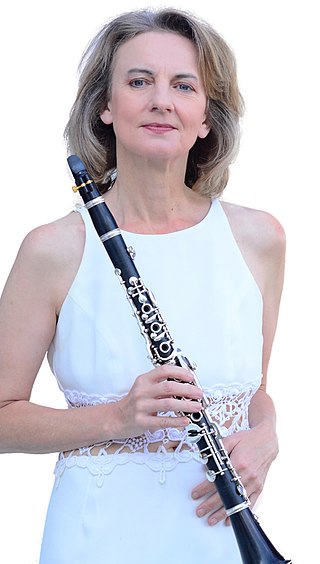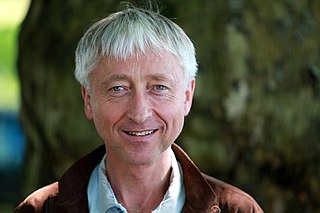Related Research Articles
The Berlin Philharmonic is a German orchestra based in Berlin. It is one of the most popular, acclaimed and well-respected orchestras in the world.

Claudio Abbado was an Italian conductor who was one of the leading conductors of his generation. He served as music director of the La Scala opera house in Milan, principal conductor of the Berlin Philharmonic, principal conductor of the London Symphony Orchestra, principal guest conductor of the Chicago Symphony Orchestra, music director of the Vienna State Opera, founder and director of the Lucerne Festival Orchestra, founder and director of the Mahler Chamber Orchestra, founding artistic director of the Orchestra Mozart and music director of the European Union Youth Orchestra.

Herbert von Karajan was an Austrian conductor. He was principal conductor of the Berlin Philharmonic for 34 years. During the Nazi era, he debuted at the Salzburg Festival, with the Vienna Philharmonic, the Berlin Philharmonic, and during World War II he conducted at the Berlin State Opera. Generally regarded as one of the greatest conductors of the 20th century, he was a controversial but dominant figure in European classical music from the mid-1950s until his death. Part of the reason for this was the large number of recordings he made and their prominence during his lifetime. By one estimate, he was the top-selling classical music recording artist of all time, having sold an estimated 200 million records.

Mariss Ivars Georgs Jansons was a Latvian conductor, best known for his interpretations of Mahler, Strauss, and Russian composers such as Tchaikovsky, Rachmaninoff, and Shostakovich. During his lifetime he was often cited as among the world's leading conductors; in a 2015 Bachtrack poll, he was ranked by music critics as the world's third best living conductor. Jansons was long associated with the Bavarian Radio Symphony Orchestra and Royal Concertgebouw Orchestra as music director.

The Berliner Philharmonie is a concert hall in Berlin, Germany, and home to the Berlin Philharmonic Orchestra.

Sabine Meyer is a German classical clarinetist.

Tabea Zimmermann is a German violist who has performed internationally, both as a soloist and a chamber musician. She has been artist in residence of the Concertgebouw Orchestra, the Berlin Philharmonic, and the Bavarian Radio Symphony Orchestra. In 2004, Zimmermann founded the Arcanto Quartet, a string quartet that performed until 2016. Several composers have written music for her, including György Ligeti, and she has made her own version of Bartók's Viola Concerto from the composer's sketches.
The Salzburg Easter Festival is a classical music and opera festival held every year over the extended week before Easter in Salzburg, Austria since 1967.
The Hans von Bülow Medal is awarded by the Berlin Philharmonic Orchestra to outstanding musicians close to the orchestra. The medal is named after its first Chief Conductor, Hans von Bülow.
The Grand Prix du Disque for Instrumental and Symphonic Music is awarded by the Académie Charles Cros, L'Abbaye, 02570 Chézy sur Marne, France. Categories vary from year to year, and multiple awards may be given in the same year in the same exact category. Instrumental and Symphonic music may include solo & orchestra (concerto) or pure symphonic music. Other subcategories have included classical symphonic music, contemporary symphonic music and modern concerto.

Karl Leister is a classical clarinet player from Wilhelmshaven, Germany. At a very young age, he learned to play the clarinet from his father, also a clarinetist, and later studied at the Hochschule für Musik in Berlin. As a teenager, he was accepted into the Komische Oper Berlin under Václav Neumann and Walter Felsenstein as clarinet soloist.
Stefan de Leval Jezierski is an American horn player and was the longest serving hornist of the Berlin Philharmonic Orchestra.
Christian Stadelmann was a German violinist. For many years he was leader of the second violin section of the Berlin Philharmonic.

Herbert Willi is an Austrian composer of classical music, whose orchestral works, concertos and chamber music have been performed internationally and also recorded. Willi composed an opera, Schlafes Bruder, for the Opernhaus Zürich.

Wolfgang Boettcher was a German classical cellist and academic teacher. He was principal cellist of the Berlin Philharmonic, and a founding member of The 12 Cellists of the Berlin Philharmonic. From 1976, he was professor at the Hochschule für Musik Berlin. From 1986 to 1992 he was artistic director of the Sommerliche Musiktage Hitzacker chamber music festival.

Hellmut Stern was a German violinist who played principal violin with the Berlin Philharmonic. He published his autobiography in 1990, narrating his life in exile in China from 1938, Israel from 1949, and the U.S. from 1956, and his return to Berlin in 1961. Through his membership of the board of the Berlin Philharmonic, he initiated the orchestra's first tour to Israel.
Jan Diesselhorst was a German cellist.
Neithard Resa is a German violist and former member of the Berlin Philharmonic.

Siegfried Paul Otto Borries was a German violinist and violin educator.
Johannes Hans Bastiaan was a German violinist. He was a member of the Berlin Philharmonic for over 40 years. From 1945 to 1970, he served as primarius of the Bastiaan Quartet.
References
- ↑ "Förderung" Berliner Philharmoniker. Retrieved 2 December 2020.
- 1 2 "Karajan-Akademie: Lernen von den Profis" Berliner Philharmoniker. Retrieved 2 December 2020.
- 1 2 "Berliner Philharmoniker: Orchester-Akademie nach Karajan benannt" Musik Heute, 24 May 2017. Retrieved 2 December 2020.
- ↑ "Ausbildungskonzept" Berliner Philharmoniker. Retrieved 2 December 2020.